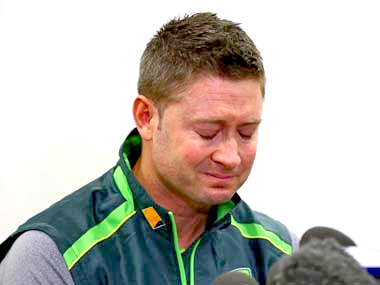 Sydney, Dec 1: The decision to postpone the first India-Australia Test is the right one. Yes, going ahead with the game in Brisbane might have served as a distraction for players and fans alike, but this is not the time for distractions. This is a time for being human.
Sydney, Dec 1: The decision to postpone the first India-Australia Test is the right one. Yes, going ahead with the game in Brisbane might have served as a distraction for players and fans alike, but this is not the time for distractions. This is a time for being human.
Grieving is a vital part of the human experience. We should make space to lament the loss of those we care about. We should give grief our deepest, fullest attention. We should not rush to put it behind us or distract ourselves with other pursuits.
The players, especially the Australian players, need time to grieve over Phillip Hughes’s death. They need time to come to terms with what has happened and to once again find meaning in the sport they play. That one ball, one short moment in time, could shatter all their universes forever is not easy to absorb, let alone overcome.
Take David Warner. As Greg Baum writes for the Sydney Morning Herald:
“He was a mate of Phillip Hughes, his one-time opening partner. He was on the spot that tragic day at the SCG, he rode with Hughes in the ambulance, he was an ever-present at the hospital … Might it be that India could promise to bowl nothing but long-hops and he still would not give a stuff for this cricket match?”
Those of us who follow sport, any sport, with even a little bit of passion tend to treat what happens on the field as something of the utmost importance. Winning or losing a match can seem like a cataclysmic event that alters the fabric our lives. But in truth, little changes. We either celebrate a victory over mope over a loss. Then we get up the next day and everyone we love is still there and we repeat the cycle.
When Australia lost the Ashes in England in 2013, it felt like despair. Less than two years later, Australia smashed England 5-0 to win back the urn and were on top of the world. The wheel had turned. Despair had become joy, and joy despair.
If a player is dropped, he can always win his place back. It is precisely because sports is not permanent, because today’s loser can become tomorrow’s hero, that we imbue sports with so much meaning. We want to believe it can, and will, get better.
Death, however, is final. There is no tomorrow. It cannot, and will not, get better. Hughes’ voice will not echo around the dressing room again; his cheeky grin will only be seen in photographs. This is what the players have to come to terms with. This is what the sport has to come to terms with.
To expect the Australian players to do that while also being mentally and physically committed to five days of cricket is expecting too much. As former Australia captain Ricky Ponting wrote in his column for News Limited Newspapers on Saturday, 29 November 2014: "Even if the boys think they can play it would be a miracle if they find the right frame of mind needed for five days of cricket.”
In our 24/7, always-on-the-go world, time and attention have become precious commodities. We tend to flit from one thing to another and multitasking has become a badge of honour. But death, especially when it is sudden and unexpected, as in the case of Hughes, demands our full attention.
Normal life will eventually resume, of course, but it should do so naturally. There will be time again for cricket but the time to mourn is only now.
In postponing the first Test, cricket has honoured not just the memory of Phillip Hughes, but also the humanity of those that played alongside him and counted him as a friend.





Comments
Add new comment